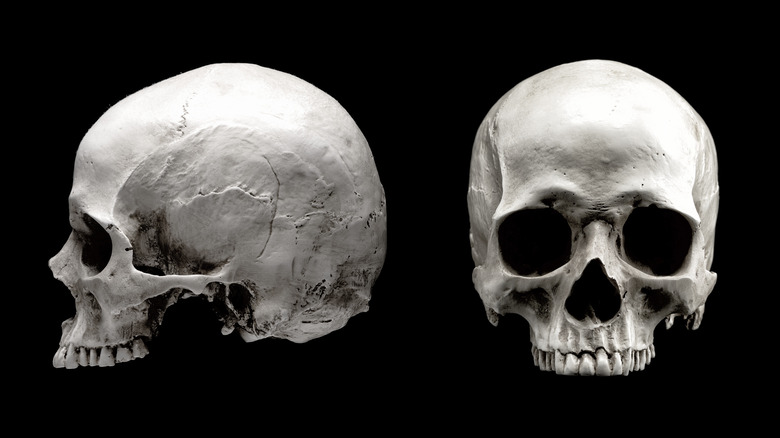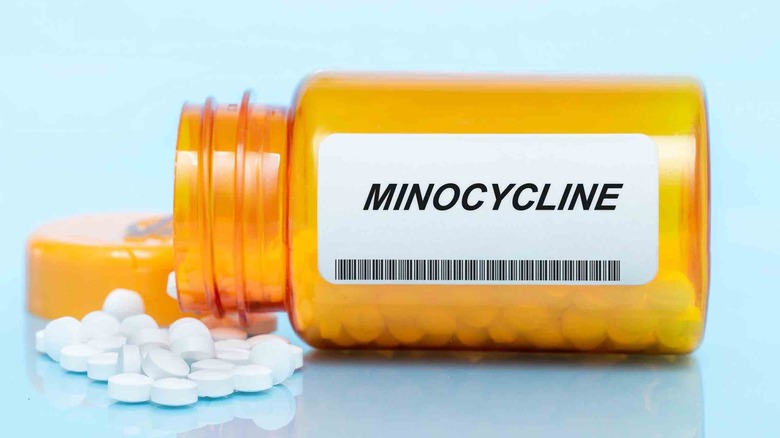The Rare Disease That Turns Your Bones Black
When the notorious Black Death (the bubonic plague) descended upon Europe centuries ago, the world was stricken with sickness. The disease spread like wildfire, cropping up in infected persons in the form of grisly black boils, fever, chills, and oftentimes death (via My Cleveland Clinic). With a harrowing name like the Black Death, you'd expect it to live up to its namesake. According to IFL Science, there's another strange ailment known to arise from time to time in the modern day that results in a certain form of black discoloration: minocycline black bone disease.
"My bones are black. Like, the bones in my body are black," a popular TikTok user known as archiebeshort (Archie) shared on social media recently. Apparently, Archie took a trip to the dentist to find out why his budding wisdom teeth were black, and it wasn't because he was eating too much candy. "It turns out that my jaw's black," he shared. "And probably the rest of my skull and most of my bones [are too] according to my doctor" (via IFL Science).
What is minocycline black bone disease?
IFL Science reports that as a teenager, Archie was prescribed a drug known as minocycline to treat his acne problem. Doctors were able to trace the phenomenon back to this time in his life, as black bone disease has been known to occur after a rapid intake of the drug begins to turn one's bones entirely black. According to the Journal of Orthopaedic Surgery and Research, the disease is rarely ever encountered, and it certainly doesn't fail to shock the patient when they learn that they're essentially walking around with a black skeleton beneath their skin.
"Black pigmentation of bone by minocycline is thought to occur through ferric iron being bound to the oxidized drug in developing bone," a group of researchers shared after carrying out a meticulous study in 2012. "And via the accumulation of insoluble quinine from degradation of the aromatic ring of the drug in mature bone." That's a lot of scientific jargon, but essentially, the chemical reactions that take place in the bones after minocycline starts to absorb into the person's body causes them to turn black.
Is black bone disease dangerous?
You can definitely be forgiven for assuming that black bones probably equals bad news. After all, what kind of disease turns your white bones totally black and doesn't kill you? Is this the onset of some new insidious plague that lurks beneath the skin and kills silently? Well, as it turns out, that's luckily not the case. A team of researchers shared in the Journal of Orthopaedic Surgery and Research that there has yet to be a case of minocycline black bone disease that results in death or any sort of serious health issues.
However, there are times when the disease can discolor your teeth, and given that nobody likes to walk around with black chompers (unless it's Halloween, of course), this could pose some discontent in anyone experiencing the rare diagnosis. Nonetheless, simple teeth-whitening methods have proven to suffice in such cases, as IFL Science reports.


